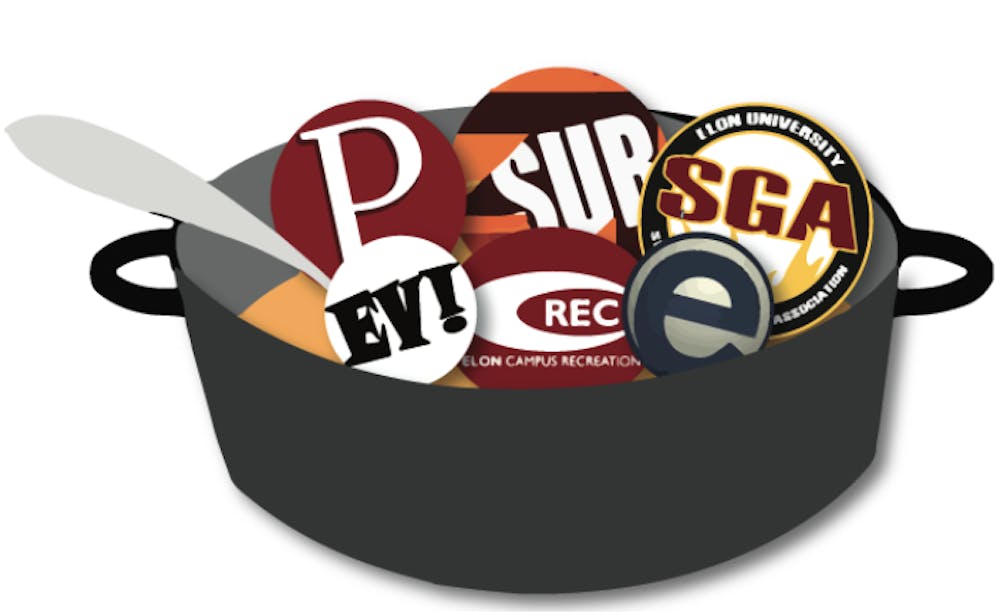With more than 200 student organizations, Elon University’s campus life is booming with activities and student-led events. But students often don’t know about these events, whether it be from a lack of interest or a feeling of awkwardness.
I recently learned about the allegory of the long spoons. There are variations, but, in short, the allegory goes like this: People are sitting around a pot of soup they cannot reach. They can only hold the end of the handle of a long spoon they are given. The spoon can reach the pot but not their mouth. Chaos ensues until one person extends the end of the spoon to the person op- posite. Everyone stares in awe as the first sip of soup is consumed, and all begin doing the same. Every individual is fed in the end, though not in the way they expected.
To build meaningful relationships with others, create successful events and impact the greater student body, collaboration among student organizations is a must.
Though each student organization is unique, many share similar visions and objectives, begging the question of why they do not work together more often.
Collaboration seems to be hindered by two possible explanations, the first being communication. The only means by which collaboration can occur is through effective communication between organizations.
For example, if students were hosting an event they knew other organizations would be interested in being a part of, it would benefit them to form partnerships.
Talking with faculty and staff, skimming through the list of student organizations and not being afraid to walk into a student office and strike up a conversation can help organizations connect.
Forming relationships with other organizations will take the extra time and effort, but imagine how successful events, campaigns and profit shares could be if there were double, triple or even quadruple the amount of students supporting the cause.
This is not to say the more cooks in the kitchen the better. In fact, having representatives from each organization meet separately seems to be the practical way to execute these partnerships. It becomes a numbers game when multiple organizations are involved in planning an event.
The more organizations involved and the more members involved, the more students on campus will hear about and attend the event.
Another reason that can explain the lack of student collaboration is the territorial perception student leaders have of their organizations. It seems that some organizations place greater emphasis on the fact they are having an event rather than the significance of the event itself.
One male senior reflects upon a time his organization was turned down from working with another student organization.
He said, “We were told our presence would negatively divert attention. The following year, once leadership had turned over, we reached out to the same organization when we heard they would be sponsoring the event again, and without hesitation they agreed our presence would be valuable.”
Elon students place great value on their leadership roles, as they should, but it is not uncommon to see these students become so caught up in their positions that they forget why they hold them in the first place.
Leadership during the creation and execution of events should be about the event itself and not necessarily about the individuals organizing it. Giving credit where credit is due is important, but self-gratification should not be the purpose of student-run events.
All of this being said, there are indeed student organizations that actively collaborate with one another. But there is so much room for growth.
An organization putting its name on another organization’s event flyer may be deemed co-sponsorship, but it is not collaboration. The active components of meeting, brainstorming and working together are what is most important.
If we are given long spoons, we need to use them as resources, as means of communication, as a solution to the problem instead of encouraging the problem itself.
To continue with the metaphor, by focusing on feeding ourselves, we are not only damaging ourselves, but everyone around us.
So let’s change these habits by challenging ourselves to extend the spoon, extend a line of communication and strive to create a campus culture that encourages the collaboration of student organizations.


